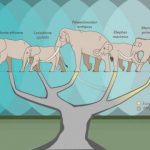Dutch firm aims to deliver first flying car in 20180
- From Around the Web, Science & Technology
- June 24, 2017
While several futuristic projects are under way in different countries, a Dutch design may be the first one sold and soaring into the skies.

Researchers at the University of Adelaide have developed an AI that can analyze CT scans to predict if a patient will die within five years with 69 percent accuracy. This system could eventually be used to save lives by providing doctors with a way to detect illnesses sooner.

An international team of mathematicians led by University of Pittsburgh Professor Thomas Hales has delivered a formal proof of the Kepler conjecture, a famous problem in discrete geometry. The team’s paper is published in the journal Forum of Mathematics, Pi.

To win the war against antibiotic resistant super bugs, scientists seek to find the origin of resistance genes. Further, they try to identify how the genes are introduced to disease-causing bacteria — so-called pathogens. Identifying where resistance genes come from and how they spread somewhat compares to finding patient zero in an outbreak, which is not an easy task.

Scientists have discovered an enzyme in the brain involved in memory formation, particularly with long-term memories. Are there any bad memories you want to get rid of? The scientists believe that those with PTSD (Post Traumatic Stress Disorder) or other memory-related afflictions can be treated by targeting an enzyme to delete bad memories.

What could possibly go wrong?

Dubai wants 25% of its police force to be robotic by 2030

New research reveals that a species of giant elephant that lived 1.5 million to 100,000 years ago — ranging across Eurasia before it went extinct — is more closely related to today’s African forest elephant than the forest elephant is to its nearest living relative, the African savanna elephant.



